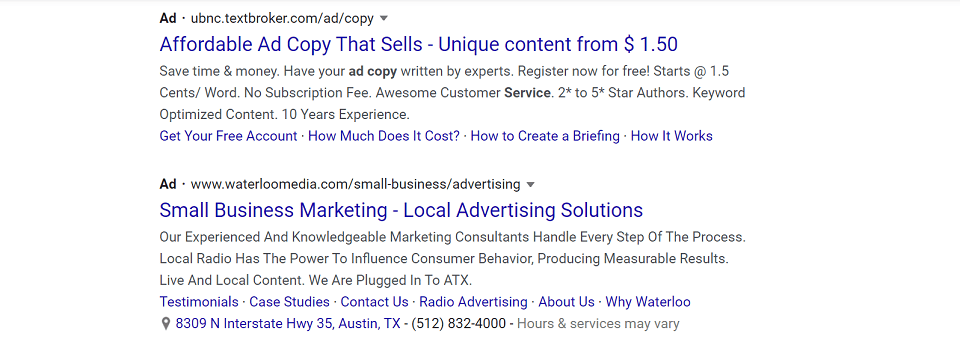You have organized a fantastic event, but how do you ensure that it reaches the right audience and generates buzz? This comprehensive SEO guide for event marketing will help you optimize your event’s online visibility and drive attendance.
In-Depth SEO Guide for Event Marketing Planners
From keyword research to on-page optimization and strategic link building, this SEO guide for event marketing planners will outline all steps you need for a successful event.
These tips will help you stay ahead of the competition and make sure your event gets the attention it deserves.
Types of SEO Tactics To Use for Events
To fill seats, you need to maximize your reach and visibility when promoting your event.
While SEO is a long-term play, you can absolutely use it for time-bound campaigns around events.
Here are some key strategies broken down into a table for easy reference:
| 1. On-Page SEO Techniques | 2. Off-Page SEO Tactics |
| 3. Local SEO Optimization | 4. Content Marketing |
| 5. Social Media Integration | 6. Link Building |
| 7. Mobile Optimization | 8. Influencer Partnerships |
| 9. Voice Search Optimization | 10. Online PR Campaigns |
On-Page SEO for Event Content Pages
Regardless of whether you are adding an event to a company website or a standalone, you’ll need to optimize the content.
For typical services and product pages, you would aim to generate evergreen content that can rank over time. And then optimize those pages.
Event marketing is no different. You still need to identify good keywords, populate meta data (titles and descriptions), and optimize your images.
And you can even do this for time-bound events, if you approach with a future forward vision. All event content can be evergreen and left live to rank over time.
Then you can optimize new pages each year while still benefiting from the old materials. Just be sure to use good on-page SEO techniques, and remain patient in sunsetting old content (or just leave it live).
Off-Page SEO to Boost Event Visibility
As with all web pages, you’ll need to do more than build pages with good on-page optimization and hope someone sees it.
Off-page promotion, specifically link building or earning, is the way you can make these pages start to drive traffic.
For event-related content, you can also do things like:
- Promoting it on social media
- Partnering with influencers to get in front of new prospects
- Sending online press releases out to the wire and industry publications
These tactics can all help increase brand awareness, drive more traffic to the event website, and improve search engine rankings.
How to Optimize for Event SEO Upside
Keyword Research for Event Promotion
Any good SEO strategy will start with keywords. They are one of the foundational elements of SEO.
Start by identifying relevant keywords that your target audience might search for when looking for events similar to yours.
There are many tools available for this purpose, both free and paid. Most search marketing pros use tools like Google Keyword Planner, SEMrush, or Ahrefs.
The latter two are great for finding keywords with high search volume and low organic search competition. You want to take both into account before choosing target keywords.
Content Creation and Optimization
High-quality content is the next step in the process. Always ensure that it’s both engaging and optimized for search engines.
More specifically, the content on your event page should be informative, relevant, and keyword-rich.
Make sure to optimize your title tags, meta descriptions, headings, image alt-texts and filenames, and body copy with your chosen keywords.
One trick I’ve seen clients employ with great success is to create an exhaustive guide to the event.
People often search for the dates, location, schedule, keynote speakers, afterparties, and more, as well as nearby lodging and restaurants. You can even weave the event into a local SEO content strategy for increased visibility in a local market.
Additionally, focus on creating valuable content that links internally to the event page. This might be FAQs or blog posts related to your event.
Not only can this content rank on its own (presuming you optimize for different keywords, which you should), but it can drive page authority to the hub page for the event. This is what you want to see.
Speaking of links…
Quality Backlinks for Event Pages
If you want to rank your content, you have to do more than build it and pray. The next step is to find other websites that are willing to link to your own pages.
Backlinks are the “secret sauce” for improving your domain authority and credibility in the eyes of search engines.
Focus on creating shareable content that other websites would want to link back to.
Reach out to influencers, bloggers, and event listing websites to promote your event and secure backlinks that can drive more traffic to your event page.
And if you’re struggling to grow your link profile, bring in an SEO Expert like Return On Now to manage it on your behalf. We offer turnkey link building programs that work like a charm and require minimal commitment on behalf of our clients.
Using Social Media for SEO Benefits
Event organizers can take advantage of social media platforms to increase the online visibility of their events.
By sharing event updates, engaging with followers, and promoting your event on social media, you can drive more traffic to your event page
And some of those may link to you, which will improve your rankings.
Encourage attendees to share your event on their social channels to reach a wider audience and generate more buzz around your event.
SEO Analytics for Event Marketing
If you want to know what is and is not working, you’ll need to analyze the performance of all event-related content. Especially the event page itself.
Use tools like Google Analytics to monitor key metrics such as visits, traffic sources, bounce rates, and conversion rates.
Upon analyzing this data, you will be able to identify areas for improvement and refine your SEO strategy for future events.
Factors Influencing Your Event’s SEO Success
Aside from on-page, content, social, and link building, there are some other areas you need to get in order as well. Otherwise, all of those efforts will be for nothing.
I’m talking about technical SEO and user experience. Failure to get these right can take the wind out of your sails on other areas of SEO.
Technical SEO: Ensuring a Solid Foundation
When I talk to clients about Technical SEO, I often call it table stakes. You HAVE to get this right before anything else will work.
Technical SEO includes many items, but the most important elements are performance / load times, mobile friendliness, and website architecture / structure.
Basically, if your site doesn’t load in a usable fashion, quickly, and with intuitive buttons and navigation, you will struggle even with everything else done perfectly.
Don’t forget that Google adopted mobile-first indexing a few short years ago. You need all of these same items to work on mobile as well as or better than your desktop web layout.
These factors directly impact how search engines crawl and index your website, affecting its visibility in search results.
By optimizing your website technically, you can lay a solid foundation for better SEO rankings.
User Experience (UX) and Engagement Metrics
Engagement metrics like session duration, bounce rate, and click-through rate are necessary indicators of how users interact with your event-related content. They directly measure the user experience (UX).
Keep tabs on these metrics to understand if you are hitting the mark on engagement and UX as a whole. If they indicate you are not, start making adjustments ASAP.
Keep one caveat in mind — You need to strike a balance between technical optimization and UX. Sometimes, the right UX decision isn’t great for SEO and vice versa.
That’s a typical dance that website owners need to maneuver.
When you take both factors into account in tandem, you can create a compelling online presence that drives organic traffic and maximizes the impact of your event marketing efforts.
The Pros and Cons of SEO for Event Marketing
So far, I’ve written this as though you already decided you need to use SEO for event promotion.
However, perhaps you have found success with other channels, such as social media ads or pay per click.
Let’s weigh the pros and cons of SEO for this use case to help you determine where (or if) it should fit within your marketing plan.
| Pros | Cons |
| Increased online visibility | Initial time and resource investment |
| Targeted traffic to event website | Competitive keyword landscape |
| Cost-effective long-term solution | Algorithm changes impacting rankings |
| Improved user experience | Requires ongoing monitoring and updates |
| Ability to track and measure results | Results may take time to show |
The Advantages of Effective SEO Strategies
With effective SEO strategies in place for event marketing, you can boost your traffic and reach your target audience more effectively.
It will help you attract quality traffic that are more likely to convert into attendees. And this is all for a one-time up front investment, as opposed to ongoing paid advertising on any platform.
Basically, you invest once and benefit in perpetuity. As opposed to a firehose of leads from advertising that only continues as long as you are running the faucet.
Potential Challenges and How to Overcome Them
Of course, no digital marketing strategy comes without challenges.
SEO has issues that are sure to arise at some point. For example:
- Search engines change their algorithms on a regular basis
- Keyword search behavior evolves over time
- Older websites can face issues with degrading performance, changing aesthetic preferences by users, and optimizing for new mobile technologies and platforms
So you do need to have some level of maintenance in place.
But the heavy lifting happens in advance and these requirements are much less time, effort, and money intensive.
Conclusion: SEO Guide for Event Marketing Demystified
If you are planning an event, you need to get leads from any channel that can help you fill seats. And I recommend you start with this SEO Guide for Event Marketing Planners.
SEO is the most cost effective and long-term sustainable strategy at your disposal.
And you can easily implement these tips and tricks yourself if budgets are tight. Of course, you can hasten your path to success if you bring in experts, so you have options.
I recommend you use a mix of organic and paid channels, particularly during the big push to sign up registrants.
But keep the SEO work going year-round, and you’ll have a growing asset to capitalize on when you’re ready to get moving on the next one.
Tommy Landry
Latest posts by Tommy Landry (see all)
- PPC for Car Dealerships – How This Niche Differs From The Others - July 23, 2024
- Trademarks in PPC – What You Need to Know and What to Avoid - July 16, 2024
- PPC Trends and Statistics for 2024 - July 9, 2024





